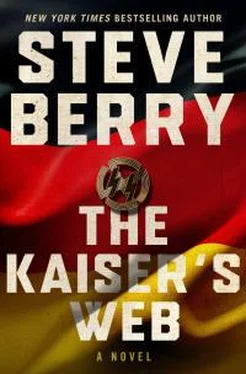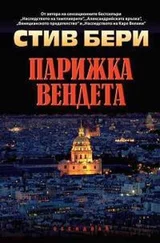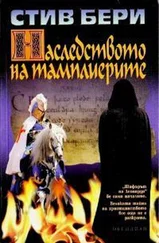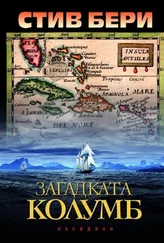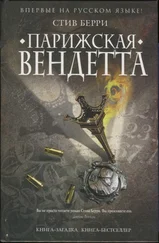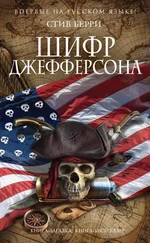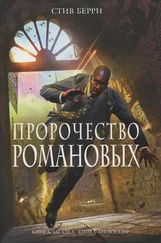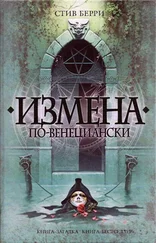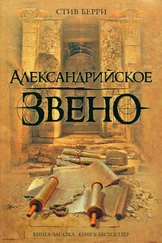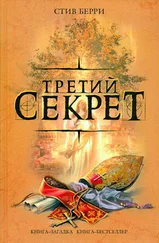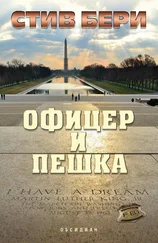FREE STATE, SOUTH AFRICA
SUNDAY, JUNE 16
7:00 A.M.
Cotton rose from the bed. Cassiopeia was still asleep beside him. He grabbed his laptop and booted up the machine. Danny Daniels needed to know about the new developments, but he wanted to be sure about Gerhard Schüb, or whoever that old man really was last night, before doing so. One constant that had become painfully obvious over the past few days was that nothing was as it appeared. Certainly Schüb had made an impression, a supposedly firsthand witness to the fact that Martin Bormann and Eva Braun survived the war and parented a son, who was now a candidate to be chancellor of Germany.
Exactly what they’d been sent to confirm.
It might be true. Then again, it might not.
So a little homework was in order.
He found the dossier that Marie Eisenhuth had supplied on Pohl and reread the information.
Birth records on file in Hesse indicate a date of birth of March 15, 1952, to Wilfrid and Cornelia Pohl. Wilfrid Pohl studied national economy at the University of Berlin. After World War I he was a founder of the German Democratic Party and advocated national democracy. He was forced to leave that party after an internal scandal. He shifted ideologies and was elected to the Reichstag by the conservative German People’s Party, and became a member of the Reich Economic Council. Eventually he headed the Reichsbank office in Frankfurt until 1941. He then became president of the senate in Hesse, working for the National Socialists. No evidence of anything criminal ever surfaced in his past, and he escaped postwar prosecution. Little is known of Cornelia Pohl.
Theodor was an only child, raised in southern Hesse. He attended university in Cologne but finished his studies in Munich. Grades average. No honors. Married for a short while, now divorced. He has no known children.
Three interviews with persons in Hesse, who were living in the 1940s and 1950s, confirm that the Pohls parented a boy named Theodor. None could recall any specifics of the birth. Postwar was a chaotic time, they all explained. Each seemed surprised by an assertion that the child may not have been the Pohls’, but all commented that there were many orphans at that time who needed homes and everyone did their part. All note that the Pohls were quiet and reserved. None could recall any controversy surrounding them.
Wilfrid Pohl, though a Nazi Party official, served in the postwar government and aided in restoring the German banking system. Again, nothing unusual since many ex-Nazis were recruited for postwar government service. The Pohls lived modestly. Wilfrid Pohl died in 1974, his wife in 1977.
Theodor moved into the business world immediately after university. He was a real estate speculator for a number of years and made some wise investments in Frankfurt, which turned huge profits. He financed several massive building projects and continues to receive generous rent payments. He moved into the publishing business by age thirty-five and now commands one of the largest media conglomerates in Germany. Books, periodicals, radio, television, movies. His net worth was recently estimated by Stern at 2.5 billion euros. Passport records indicate—
Cassiopeia sat up in the bed and shook the sleep from her eyes. She was fully dressed, as was he. They’d both slept ready for trouble.
“Pohl has traveled a lot,” he said. “But not here. I thought I recalled that detail. Take another look at this.”
He passed her the laptop, then stepped into the bathroom and splashed warm water on his face and brushed his teeth. The past few days had been long, and he was still jet-lagged from the flight over the Atlantic.
A lot was happening.
And he was supposed to be retired.
He wondered about his bookshop. He loved that place, its air constantly reeking of old paper and musty leather. The previous proprietor had not kept the stacks in order and he’d worked for three months before opening the doors to rearrange everything, taking his organizational cue from other stores in Copenhagen. Bookselling seemed an art form in Denmark. There was a real appreciation for the written word, one he’d come to admire. He’d even done something unusual for him. He joined the Danish Antiquarian Booksellers Association and made a point to attend their monthly gatherings. Thankfully, he’d hired great people and realized they would keep an eye on things, like always.
He stepped back into the room, patting his face with a towel.
“I think Schüb is for real,” she said. “We can put an end to Theodor Pohl. But those financial records will also end Eisenhuth.”
“Both these politicians want a firing squad, but they’re circling up to fire. Still, something about this doesn’t ring right. It’s bothered me all night. There’s more happening than we can see.”
“Any theories?”
Before he could answer, a knock on the rondavel’s door drew his attention. Awful early for visitors. He stepped over and peered out the window as Cassiopeia reached for her weapon. Jan Bruin stood outside. Alone.
Cotton signaled all was good and opened the door.
“Good morning,” the hefty Afrikaner said in English. “I’ve come to fetch you for my father.”
He stepped back and let the big man enter. Bruin was dressed in jeans and a work shirt. Schüb told them last night someone would come by.
“A cold morning ensures a warm day,” Bruin said.
He wasn’t interested in a weather report. “Your father seems to be in charge, despite the fact he’s supposed to be dead.”
Bruin chuckled. “He does look good for a corpse. But I bow to his seniority. He is, after all, my father.” Bruin faced Cassiopeia. “And good morning to you, Fräulein Vitt. I must apologize to you both for the deception yesterday. I assumed you were aware I was lying about Herr Engle.”
“We were,” he said.
“You kept that fact close,” Bruin said. “Well done.”
“You’re a pretty good liar yourself,” Cassiopeia said.
Bruin chuckled. “We had to make an assessment. My dear aunt Ada called and told us that you may be coming. She told us all about what happened in Chile and said you were people we could trust. But we’ve learned to be cautious. Last night I dealt with Josef Engle. I so wanted to kill him, but Father had a much better idea.”
Bruin told them what occurred at his home. “Engle boarded a plane six hours ago. He is now on his way to Paris.”
“And then to Germany?” Cassiopeia said.
“Most certainly,” Bruin said. “I believe Father’s assumptions are correct and Engle will not tell Pohl that I am still alive.”
“Welcome to the realm of the corpses,” Cotton said. “Seems we’re all dead. So what now?”
“You wanted to see the graves. I am here to take you. Father will meet us at the cemetery. And bring your things. We will not be returning here.”
Cotton had already concluded that the South African connection was played out. “How about we leave in thirty minutes. A shower would be welcome.”
Cassiopeia stood from the bed. “I agree.”
CHAPTER SIXTY
Cotton marveled at the ride from Nohana across the Free State, which revealed 150 miles of bleached earth dotted with towering, chocolate-brown anthills, some six feet high. Occasionally the sparseness was broken by farms, the sun quivering off corrugated iron roofs.
Leaving the Free State, they entered the adjacent province and the town of Kimberley, just over the border. He was familiar with the locale. The heart of the country’s diamond industry and home to the original De Beers mine, it was brown and ugly with streets laid out by diggers seemingly in a hurry, their shacks gone, the modern buildings huddled together like a crowd of those miners reveling in a find. The real wealth of the area was clearly not the land itself, but what was beneath—gold, diamonds, minerals—enough to have made some men obscenely rich.
Читать дальше
